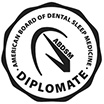Dentures – Indianapolis, IN
Replace Your Missing Teeth with Confidence
When faced with an entire arch of missing teeth or even just a few, you may wonder if you’ll ever see a full, complete smile again. With the help of dentures by Indy Dental Group, our team can rebuild your smile in such a way that ensures greater functionality and aesthetics. Nowadays, dentures are made using high-quality materials, so you don’t need to worry about teeth that appear fake, bulky, or ill-fitting. If you’re interested in learning if you’re a candidate for dentures, call our office today to schedule an appointment.
Who’s a Good Candidate for Dentures?
Dentures are extremely versatile, helping a wide range of patients with varying levels of tooth loss. Whether you have consecutive gaps in your smile, sporadic tooth loss throughout your mouth, or are entirely without teeth, this reliable method of tooth replacement could be the solution for you. To determine your candidacy, we recommend scheduling a consultation with our Indy Dental Group team. This way, we can better understand your unique dental needs and help you decide the most appropriate course of action.
Effects of Missing Teeth
Tooth loss can occur due to various reasons, each carrying its own set of risks if left unaddressed. Some common reasons include tooth decay, gum disease, and injuries. The American Academy of Periodontology highlights several negative consequences associated with missing teeth, such as facial sagging, speech difficulties, challenges in eating, and diminished self-esteem.
By choosing to replace your missing teeth with dentures, you can mitigate these negative effects. Since dentures can restore both the appearance and function of your teeth, you’ll feel empowered to speak, eat, and smile with renewed confidence!
What Qualifies You for Dentures?
Dentures are an excellent solution for patients facing significant tooth loss. However, you must be willing to take proper care of your replacement teeth and oral health if you’re seriously considering this solution. Pre-existing oral health issues, such as tooth decay or gum disease, must be addressed before proceeding with the denture placement process.
The extent of tooth loss determines the type of denture recommended for you. Notably, dentures are an affordable alternative to other options like dental implants. This affordability allows you to achieve a stunning smile even if you're on a budget at the moment!
Alternative Tooth-Replacement Options
For patients who are not suitable candidates for dentures, alternative options such as dental bridges or implants can be explored:
- Dental Bridges – These "bridge" the gap left by a missing tooth, with support from adjacent teeth. Dental bridges are well-suited for patients missing one or a few teeth, provided the surrounding teeth are in good health.
- Dental Implants – Because these titanium posts must be inserted into the jawbone, they require a strong bone structure for support. While this option is more expensive and involves a surgical procedure, it stands out as the most stable and permanent solution for tooth replacement.
Types of Dentures
Your discussion with our team members will include the different types of dentures you can choose from. Based on the number of teeth you are missing as well as your budget, we will recommend the one that is right for you:
Partial Dentures
Made out of an acrylic base that matches the color of your gums, a partial denture acts like a puzzle piece, filling in the gaps along an arch. The teeth are often made of porcelain or acrylic, and they replace the vacated areas of your smile so that you can eat, speak, and smile easily. Partials also have metal clips that attach to healthy teeth so that they replace in place.
Full Dentures
When missing an entire arch of teeth, a full denture can be created. Made of the same materials as a partial denture, these prosthetics do not possess metal clips, as they rely solely on a person’s natural suction and denture adhesive. Full dentures can rebuild a person’s incomplete smile, allowing for better oral function and aesthetics.
Implant Dentures
The most superior form of tooth replacement is dental implants. Instead of relying on natural suction to hold your new teeth in place, an implant denture attaches to 4-6 implant posts that are surgically placed within the jawbone. Fusing with the bone tissues over several months, these prosthetics are permanent and can last a lifetime with proper care.
Benefits of Dentures
Many great benefits come with dentures. No matter the type you choose, you can expect to feel confident once again in your smile. From the way they feel to how they function and even their ability to improve your bite force and speech clarity, the advantages you can expect with these prosthetics will have you feeling confident and satisfied with your decision to choose dentures.
Psychological Benefits
The psychological benefits of dentures may not be something you immediately grasp, but the reality is that when you look in the mirror to see a complete, natural-looking smile again, you’ll notice a shift in your mental and emotional state. Instead of feeling embarrassed or sad that you are without a full set of teeth, you’ll begin to feel more positive about your appearance and the way your new teeth allow you to resume living life as normal.
Clear Enunciation
Tooth loss can make forming words and sounds difficult because of the way the tongue and teeth interact with each other. When gaps leave nothing for your tongue to press against while speaking, speaking clearly becomes a challenge. However, with dentures, speech can be restored, allowing for greater clarity when talking to others. Whether it’s being able to give a presentation at work or simply reading a bedtime story to your grandchild, your dentures can help make it possible.
Improves Nutrition
Dentures help to open doors to better nutrition, allowing you to resume eating healthier, nutrient-rich foods that fuel your overall health. Living without a full set of teeth can make it hard to consume and digest certain foods, resulting in malnutrition and other serious issues. Yet, dentures offer a way to avoid worsening health problems; instead, making it easier to give your body, brain, and smile what they need to thrive.
Preserves Oral Health
Partial dentures work together with natural teeth, keeping them firmly in place and avoiding misalignment. Oftentimes, tooth loss causes nearby structures to begin to drift, resulting in additional oral health problems that require orthodontics to fix. However, with dentures, you can rebuild your smile and keep it healthy moving forward.
Expands Opportunity
No matter your age, opportunities can arise at any time. Whether it is professionally or personally, having a complete smile is the best way to make a good first impression. Fortunately, dentures look completely natural, and they offer improved speech clarity, so if it’s a job interview you’re preparing for, a project you need to present to your boss, or being able to talk freely and confidently with someone new, dentures can give you access to these opportunities and much more.
How Dentures Are Made
If you’ve experienced significant tooth loss, dentures may be the solution for you. By understanding how the process works, you will be able to appreciate your new smile that much more! Every denture is customized which requires multiple steps to achieve the final results. Here is what you can expect.
What Are Dentures Made of?
Dentures are comprised of two different parts. Here is what each of them looks like.
- Base: The base of the denture is the structure that supports the replacement teeth. It can be made from a variety of different materials, including acrylic, nylon, and resin. Most of the time, acrylic is used because it can be easily tailored to match natural gum tissue. Partial dentures often use metal clips with an acrylic base.
- Teeth: The replacement teeth are attached to the denture base. They are usually made from resin or porcelain because they both have a natural appearance. However, porcelain is more popular because it looks and feels just like natural tooth enamel. It is also highly durable, so it is less likely to become damaged.
The Denture Creation Process
Dentures are customized for each patient. Here is how the process works:
- Your dentist will begin by taking measurements of your jaw and impressions of your mouth. This way, a model can be created to match the exact size and shape of your mouth. This model is used to make sure your final denture fits perfectly.
- The model is sent to the dental laboratory. This is where your dentures will be made. They will start by creating a wax replica of your gumline.
- The replacement teeth will be set in place using a mechanical device called an “articulator.” Adjustments are then made by a technician.
- Your wax dentures are sent to the dental office for a fitting. If they look good, your dentist will return them to the dental lab.
- Once back at the lab, the technician will place your denture in a flask. Plaster is poured in to maintain their shape. The entire flask is placed in hot water to melt the wax.
- Holes are made in the teeth and acrylic is injected into the flask to replace the wax.
- The plaster is then carefully removed from the denture with special tools. The dentures are placed in an ultrasonic bath to clean the rest of the plaster off.
- Excess acrylic is cut from the dentures. Then, it is polished to perfection.
- Now that the dentures are finished, they will be sent to your dentist. Then, you will return to the office for a fitting. If everything looks and feels as it should, you can leave the practice with a brand-new smile!
Adjusting to Your New Dentures
It is common for patients to encounter some soreness and discomfort when they first get their new dentures, but this is normal and temporary. With some time, your mouth will adjust to your prosthesis and your dentures will begin to feel like your natural teeth. Just remember to stick to softer foods and exercise your facial muscles during this time. If discomfort persists or you have any questions or concerns about your replacement teeth, don’t hesitate to reach out so we can help.
Understanding the Cost of Dentures
While dentures are one of the most cost effective way to replace most or all of your teeth, most patients still tend to worry a little bit about how they’re going to budget for the procedure. We’ll be happy to assist you throughout that process, and will tell you as much as you’d like about how you can make the treatment affordable.
Until we can meet you, here’s what you should know about the cost of these prosthetics.
Factors that Affect the Cost of Dentures
There are a variety of factors that can affect what your dentures tend to cost. The first are any procedures that you get in order to prepare for your prosthetic, like if you need tooth extractions.
Then there’s the construction of the dentures themselves, including the materials that they’re made out of. The type of acrylic made for the base, and the particular replacement teeth that you use, have a lot to do with what your dentures are going to ultimately cost.
Are Implant Dentures More Expensive?
As you might guess, implant dentures are similar to traditional dentures except that they’re connected to dental implants. This provides them with an additional layer of stability, and means that your dentures will last much longer than usual. However, as you may imagine, the cost of the dental implants makes the overall procedure more expensive.
Does Dental Insurance Cover Dentures?
Dentures are usually well within the realm of what dental insurance will cover. Depending on the details of your plan, you can expect to have around 50% of your prosthetic covered overall. That said, every plan is different; it’s important to figure out the details of yours in particular.
Other Options for Making Dentures Affordable
Even if you don’t have insurance, we have options that can potentially make your prosthetic fit your budget. For one, you may be interested in pursuing financing options that can help you to split the cost of your dental care into monthly payments.
CareCredit is a financing firm we often work with, one that can allow you to split the cost of your services into several low-to-no interest payments. Give us a call; we’ll be happy to discuss this and any other financial question you could have.
Dentures Aftercare
Your new dentures can help transform both the appearance and function of your smile! However, even if you have few or no remaining natural teeth, it is still important to visit your dentist regularly for a variety of reasons. Your dentist will continue monitoring any existing teeth and gum tissue, as well as keep an eye out for any abnormalities that could indicate oral cancer. These changes can be difficult to notice when you wear dentures, and early detection from your dentist is an important key to making a full recovery.
Removeable Dentures
Remove After Eating
Following every meal, remove and rinse your dentures thoroughly. This will help prevent the buildup of plaque and food debris. Never use hot water to rinse them as this can warp the denture material and cause them to stop fitting properly.
Clean Your Restoration
Always completely remove your dentures to clean them. Using a soft-bristled toothbrush and a small amount of denture cleanser, unscented hand soap, or mild dish soap, scrub them gently on all sides. Never use regular toothpaste on them, as they weren’t meant to stand up to abrasive products.
If you won’t be wearing your dentures again right away, gently place them in a container of water or denture soak so they do not dry out and lose their shape.
Rinse your dentures thoroughly before putting them back in your mouth, as these cleansers were not meant to be in the mouth.
Keep Your Dentures Safe
The first thing you should do before cleaning your dentures is to place a towel underneath in case you accidentally drop them. This will cushion the fall and reduce the probability of them becoming damaged.
Always keep your prosthetics out of reach of small children and pets.
Remove When You Sleep
Remove your dentures each night before you go to bed. Wearing them restricts the circulation to your gums, causing soft-tissue irritation, and removing them while you sleep allows them a chance to recover.
Sleeping with dentures has been associated with a higher risk of pneumonia as well as increased levels of gum and tongue plaque.
Leave your dentures soaking in water or denture soak overnight, as allowing them to dry out can cause permanent damage.
Notice Changes
Be on the lookout for any changes in your oral health so you can address them with your dentist. This includes any mouth sores, gum irritation, or signs of infection.
Should your dentures become damaged, never attempt to repair them yourself, as you could accidentally make the damage worse. Instead, please contact your dentist as soon as possible for assistance.
If you notice that your dentures are shifting, clicking, or showing any other signs of improper fit, let your dentist know as soon as possible, as your prosthetics may need to be relined or replaced.
All-on-4 Dentures
Brush your new dentures twice a day using a soft-bristled manual or electric toothbrush and non-abrasive toothpaste. Never use toothpaste that contains baking soda or stain removers.
Be sure to floss your restoration at least once a day. Floss threaders can help make reaching beneath your denture easier. You may also want to consider investing in a water flosser to help keep the prosthetic and your implants clean.
Sulcus brushes are one-third the width of a normal toothbrush and an excellent way to clean between your restoration and your gums.
Finally, be sure to rinse your mouth daily with antibacterial mouthwash to help prevent the growth of tartar.
Denture FAQs
For those who are missing one, several, or all of their pearly whites, dentures can be the life-changing solution needed to enjoy a full smile again. Even so, it’s normal to want to know as much as possible about the treatment before going forward with it. To help you be confident and well informed about your decision, here are several frequently asked questions we get from our patients about dentures. If you don’t find the information you’re looking for or want to schedule your initial consultation, feel free to give us a call today!
Will It Hurt to Get Dentures?
You’ll likely experience some discomfort if you require any teeth to be removed before receiving your custom dentures. Fortunately, this can be managed easily by taking over-the-counter and/or prescribed pain relievers as instructed. Once you wear your dentures for the first time, you might experience some mild irritation as your gums (and any other remaining natural teeth) get accustomed to the new oral appliance. Transitioning to new dentures can involve a longer adjustment period, but the timeframe is different for each patient. If you notice any persistent discomfort, notify us right away so we can address the underlying issue and ensure your dentures are well-fitted.
Is It Hard to Talk with Dentures?
It can take some time to grow accustomed to speaking with your dentures on for the first time since your mouth is used to talking with your natural pearly whites. The amount of time this takes will vary between people, but the more you practice, the faster you’ll get used to speaking clearly. If you want to speed up the process, try reading to yourself out loud and pronouncing difficult words or phrases repeatedly. Make sure to start slow and pay attention to the movement, as fast speech can end up sounding muffled if you aren’t accustomed yet.
Can I Sleep with My Dentures?
We highly recommend that you don’t sleep with your dentures on. Of course, you’ll usually need to keep your prosthetics in for 24 hours when first receiving them. Afterward, however, you should begin removing them every night before bed. This will allow your gums to have a break to recover and get the nutrients they need to remain healthy. Otherwise, keeping your dentures in can restrict circulation and lead to soft tissue irritation as well as make it easier for bacteria to accumulate in the space between your artificial teeth and your gum line. To avoid these issues, simply take your dentures off and store them in a cup of water or denture cleanser overnight.
Can You Still Eat Steak with Dentures?
Foods that have a tough texture can be difficult to chew and grind with dentures. Even so, it isn’t impossible as long as you take the proper measures. When choosing your steak, be sure to stick with tenderloin or beef cuts that don’t consist of excessive connective tissues/muscle fibers. These can end up making it more challenging for you to chew through. Try cutting up your steak into smaller pieces to make it easier for you to chew and eat.
How Long Will You Have to Wait to Get Dentures After Your Teeth are Extracted?
In most cases, patients will need to wait about six to eight weeks after tooth extractions before receiving their dentures. This gives your gums and jawbone enough time to properly heal, ensuring a comfortable and stable fit.
However, the exact wait time depends on the type of denture you’re getting. Partial dentures and full dentures typically require a standard healing period, while implant dentures have a longer timeline of four to six months due to the surgical placement and integration of dental implants. All-on-4 dentures can often be placed the same day as your extractions, depending on your case.
During your consultation, our Indianapolis team will outline your personalized treatment plan and recovery schedule, so you’ll know exactly what to expect.
What is the Average Age for Dentures?
If you’re worried that you’re an outlier for needing dentures at your age, rest easy. Dentures are not limited to any specific age group. While many associate them with seniors, people of all ages can benefit from them.
Tooth loss can occur due to decay, gum disease, injury, or genetics, and it’s more common than you might think. According to research, about 66% of adults aged 40 to 64 are missing at least one tooth, and the American Dental Association suggests that 57% of people between 65 and 74 wear some form of denture.
This means the older you get, the more likely you are to experience tooth loss. But one of the reasons dentures have stood the test of time because they meet you where you are, restoring your smile at any stage of life.
Can I Have My Dentures Relined if They Don’t Fit Properly?
Yes, denture relines are a common and straightforward way to improve the comfort and stability of your prosthetics over time. As your mouth naturally changes shape, your dentures may loosen or rub against your gums. A soft reline adds cushioning to help with sore spots and enhance comfort, while a hard reline reshapes the acrylic base for a more permanent adjustment.
Both options can significantly improve how your dentures feel and function. If your dentures aren’t fitting as well as they used to, visit one of our Indianapolis dental offices for a professional evaluation.



























